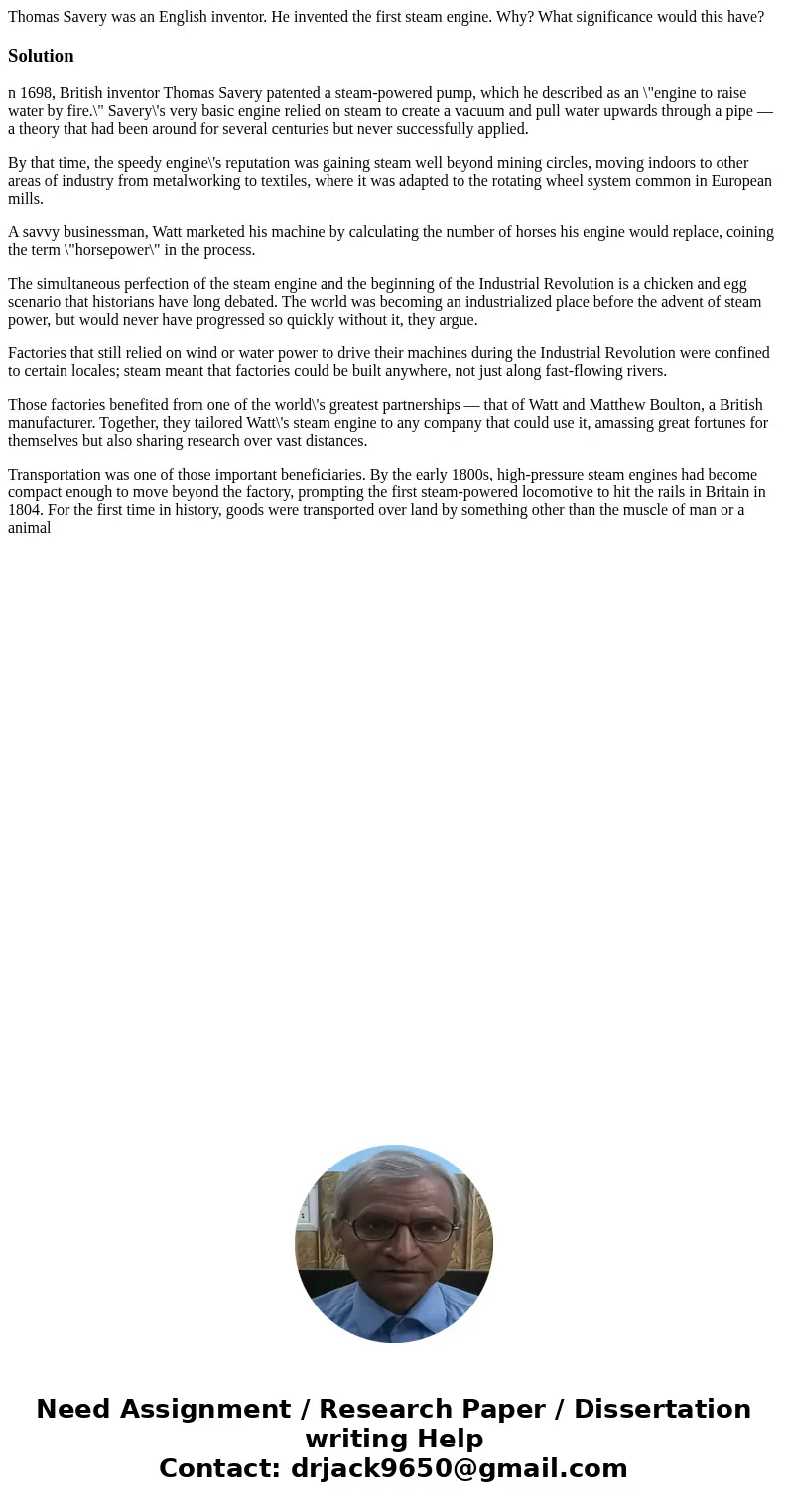Thomas Savery was an English inventor He invented the first
Thomas Savery was an English inventor. He invented the first steam engine. Why? What significance would this have?
Solution
n 1698, British inventor Thomas Savery patented a steam-powered pump, which he described as an \"engine to raise water by fire.\" Savery\'s very basic engine relied on steam to create a vacuum and pull water upwards through a pipe — a theory that had been around for several centuries but never successfully applied.
By that time, the speedy engine\'s reputation was gaining steam well beyond mining circles, moving indoors to other areas of industry from metalworking to textiles, where it was adapted to the rotating wheel system common in European mills.
A savvy businessman, Watt marketed his machine by calculating the number of horses his engine would replace, coining the term \"horsepower\" in the process.
The simultaneous perfection of the steam engine and the beginning of the Industrial Revolution is a chicken and egg scenario that historians have long debated. The world was becoming an industrialized place before the advent of steam power, but would never have progressed so quickly without it, they argue.
Factories that still relied on wind or water power to drive their machines during the Industrial Revolution were confined to certain locales; steam meant that factories could be built anywhere, not just along fast-flowing rivers.
Those factories benefited from one of the world\'s greatest partnerships — that of Watt and Matthew Boulton, a British manufacturer. Together, they tailored Watt\'s steam engine to any company that could use it, amassing great fortunes for themselves but also sharing research over vast distances.
Transportation was one of those important beneficiaries. By the early 1800s, high-pressure steam engines had become compact enough to move beyond the factory, prompting the first steam-powered locomotive to hit the rails in Britain in 1804. For the first time in history, goods were transported over land by something other than the muscle of man or a animal

 Homework Sourse
Homework Sourse